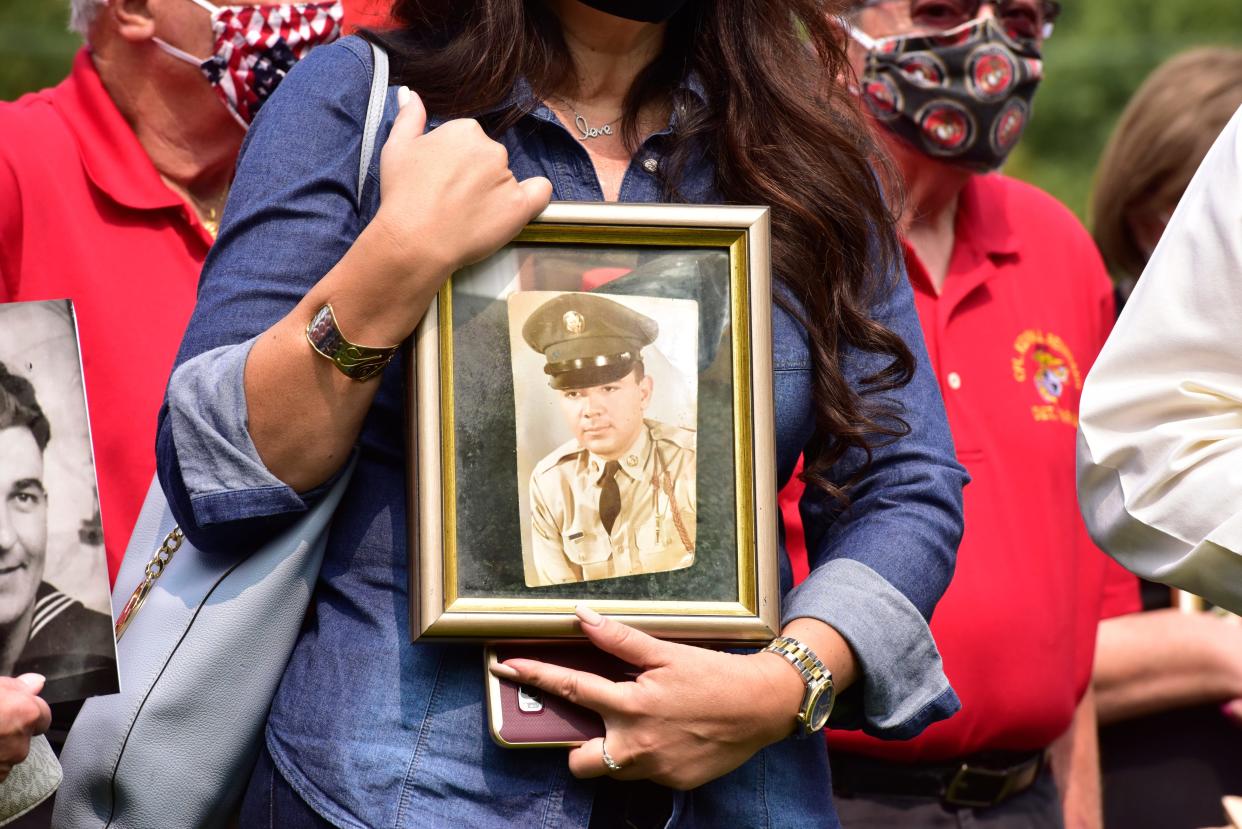New report on NJ veterans home deaths says to move oversight away from military

Oversight of the state-run veterans homes where more than 200 residents died during the COVID-19 pandemic due to "systemic and persistent problems" should be taken away from the military and put in the hands of a newly created agency that focuses on health care, a new report released Tuesday says.
The recommendation by the State Commission of Investigation is the first and most drastic offered in its 16-page report, which focuses on how "massive absenteeism" by front-line staff at the beginning of the pandemic, poor communication and faulty building designs helped exacerbate the disaster.
The pandemic "presented a perfect storm of circumstances that exposed systemic and, in some cases, enduring problems in the administration and supervision of the veterans homes,” commission Chair Tiffany Williams Brewer said in a statement.
The report comes less than a month after the publication of a more in-depth investigation by the U.S. Department of Justice, which found that a lack of preparation, deficient infection control practices, a growing distrust between managers and staff, and policies against mask-wearing helped the virus spread so fast at the Paramus and Menlo Park homes.
The primary recommendation of the commission's report echoes similar calls from others, including Dave Ofshinsky, a former executive at the Paramus facility and a whistleblower: Move the homes away from the Department of Military and Veterans Affairs, whose primary responsibility is to oversee the New Jersey Army and Air National Guard.
"Most leadership within DMAVA has traditionally been current or retired military members without medical backgrounds or the necessary knowledge of nursing homes," the report states.
The commission recommended that a new Cabinet-level agency take control of the homes and be staffed by health care professionals with experience in skilled nursing, institutional care and other skills necessary to operate the nursing homes.
Other recommendations include:
Expedite the conversion of all rooms from double-bed to single-bed. Menlo Park is scheduled to be completed by 2025, but Paramus has no target date.
Make sure all medical and front-line staffers know they are considered "essential employees" and must report for their shifts during a public health emergency.
Offer competitive pay for replacement staff.
Upgrade technological capabilities at the homes, including electronic medical records and Wi-Fi capability, to allow better communication, including telehealth consultations.
The report focuses on staff members' not reporting to work from March to late-April 2020. Paramus had a 100% increase in call-out rates, and Menlo Park’s rate spiked to a 480% increase.
Morale had plummeted at the homes, with constant distrust between workers and management. Staffers feared for their lives and were afraid of bringing COVID home to their families. Not only did staffers not have access to face masks and other personal protective equipment, but some were being disciplined for wearing masks from home because managers thought it would scare residents.
Lawyers, including those in Gov. Phil Murphy's office, began devising penalties for staffers who took masks from the homes' supplies without approval. One Menlo Park employee told commission investigators that some workers wore plastic bags over their heads at the beginning of the pandemic. At least two staff members died from COVID — one in Paramus and another at Menlo Park.
NJ news Bob Menendez's wife hit and killed a man while driving on Bogota's Main Street in 2018
Six months after the pandemic began, Murphy fired four top DMAVA officials, including the commissioner and the CEOs of both homes. He replaced the head of the agency with a physician, Brig. Gen. Lisa Hou, and hired consultants to run the top managerial spots of the homes.
The Justice Department report from last month said the homes have not improved despite calls for reforms and that they continue to provide "deficient basic medical care" in areas such as preventing falls and treating wounds properly.
While the latest report does not address current conditions at the home, it says its findings bolster the Justice Department's conclusions that "residents did not, and still do not, receive the level of care they are entitled to from the State of New Jersey."
This article originally appeared on NorthJersey.com: NJ veterans homes deaths report says change oversight

